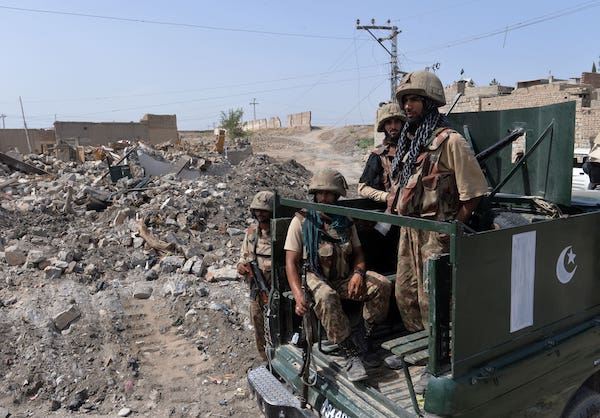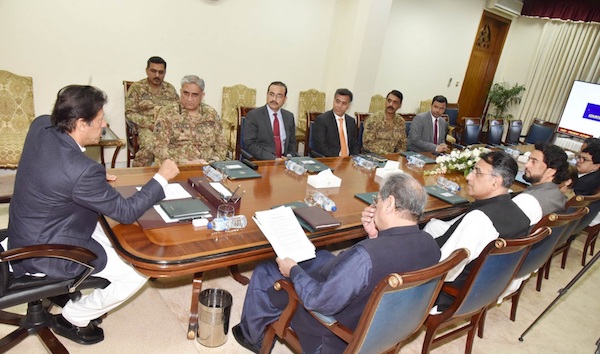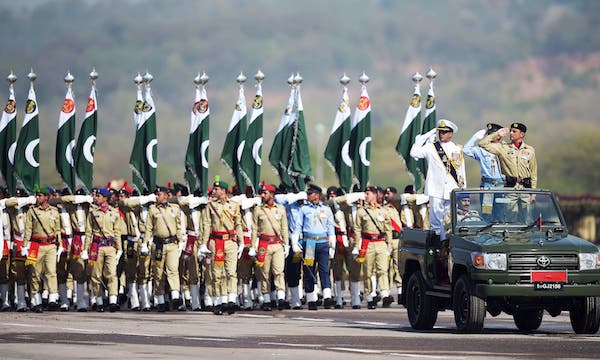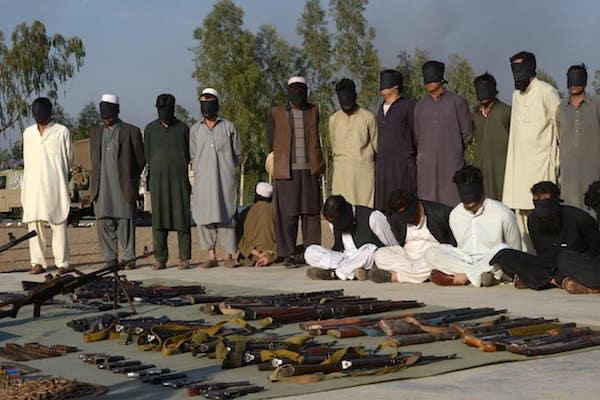In this era of uncertainty, insurgency and terrorism are hotly debated notions. Although they may be similar in language, but they are completely different in reality. While discussing both, previous op-ed in this series has defined insurgency as a policy which highlights the power asymmetry between two aggressive and belligerent groups where the objective of the insurgents is to usurp power from the dominant group. Whereas terrorism is one of the strategies that executes this policy of insurgency. Therefore, in the sequence of events, generally insurgency will come first and terrorism second. In a way, the former subsumes the latter. That is why, even in the order of responses, nominally counter insurgency comes first and counter terrorism second. But both must be policy level discussions with clear ends and strategies in mind.
Preceding articles in this series have explained policy as a definitive course of action that is selected from of range of possible courses. Counter insurgency policy is no different. It too must be a conscientious choice of direction which pursues a galvanising end vision.
Pakistan is facing multiple and complex crises in the form of economic downturn, energy and water shortages and a forced multi-front war. Though, with its far-reaching success in the war on terror, the Pakistan armed forces have given much breathing room to the civil & political administration to now win the peace. However, there seems to be a lack of resolve from the respective departments of the government to take over and maintain the areas cleared-out and secured by the Pakistani forces. They require a rousing course of action and this is where a clearly articulated counter insurgency policy will be able to help the most! Consider.
The counter insurgency policy must take a leaf out of the rebooted national security policy which was epitomised previously as principled and peaceful survival and unswerving social and economic growth through mutual co-existence, harmonious internally and externally. The national security policy also came with its list of four policy objectives. One, exist honourably in a volatile region and ensure transparent writ of the state to protect its people from all internal and external threats. Two, convert Pakistan into an economic and social powerhouse to safeguard and increase the quality of life for all Pakistanis. Three, promote diversity, liberty, equality and a culture of tolerance. Four, strive for regional and global peace through amicable co-habitation and adherence to international norms. The counter insurgency policy must act in unison with the national security policy and that is why it is deemed to be the extension of the first policy objective mentioned above. This contextualises the counter insurgency policy within the national security policy itself so that there is no disconnect between the two.

Keeping the former paragraph in mind, Pakistan’s counter insurgency policy can be defined as assimilate where possible, eliminate where needed. The broad aim of this policy will be to ensure that the insurgents are given a fair chance to be co-opted where feasible while knowing that they will be dealt with an iron fist where required. If one word was to represent this policy, it would be reconciliation. That is, the policy would reconcile through assimilation or elimination any unfavourable skewing of power between the government and the insurgents. The objectives of this policy will be threefold. One, negotiate and assimilate all willing forces and individuals. Two, defeat all non-amenable insurgents and groups. Three, win the hearts and minds of the local population to isolate militants & criminals further.
Moreover, the counter insurgency policy will also defend and promote the five national interests of Pakistan defined by previous op-ed in the series. First, Pakistan should become a nationally harmonious country a survival level national interest. Second, it should become a secure state especially with regards to its territory, citizens and constitution a national interest related to Pakistan’s survival. Third, Pakistan needs to be a successful economy and enhance the standard of its citizens through favourable social opportunities. This is a vital level national interest. Fourth, promote a morally stable and secure world governed by the rule of law. Fifth, initiate friendships globally by acting as a democratic and credible partner. The last two being major level national interests.
The core strategy to execute this counter insurgency policy of reconciliation can be termed SHAPE the environment. Where each letter of the word SHAPE stands for a particular operational and tactical activity. First, stop and call-off Jihad as per definition of the extreme right elements. Second, halt Jihadi operations by, and disband, Jihadi groups. Third, announce amnesty for all except criminals and retaliatory elements. Fourth, pursue resolute operations only against the unwilling. Fifth, enlist all amenable individuals into relevant security arms.
In the above paradigm, the counter insurgency policy will link to the national security policy and national interests northwards and leverage the SHAPE strategy to reach its objectives southwards therefore, avoiding any conflict throughout the value chain. The counter insurgency policy should stay its course until the end aim, reflected in the policy objectives, is achieved. To do this, instruments of statecraft defined as all governmental structures that run the affairs of the state will need to be tasked to execute and support the counter insurgency policy.

Imran Khan’s government has done well to move against proscribed groups but sans a cogent counter insurgency policy leveraged from the rebooted national security policy these tactics alone are not likely to go far. This is because these actions from only a portion of the SHAPE strategy i.e. pursue resolute operations only against the unwilling!
The Pakistani people have endured a tumultuous and difficult two decades and a lot of people have made a lot of sacrifices! It will be a pity to see the space created and SHAPED by the war on terror ceded unnecessarily because of a mis-aligned and mis-represented counter insurgency policy to win and maintain the peace!
A quintessential Pakistani counter terrorism policy!
Previous op-ed in this series has taken the position that a counter insurgency policy, aligned with the overall national security policy, is a must for winning the peace. To that end, a Pakistani counter insurgency policy of reconciliation is recommended.
This policy of reconciliation is tasked with curbing the insurgent tendency that aims to usurp power away from the government. Terrorism is one of the main strategies that executes this insurgent policy. Therefore, it stands to reason that after deliberating the counter insurgency policy a counter terrorism policy is also envisaged and adopted. That is also because, in the sequence of events, generally insurgency will come first and lead to terrorism, which comes second. That is why, even in the order of responses, nominally counter insurgency comes first and counter terrorism second. Consider.
The counter insurgency policy of reconciliation was explained as assimilate where possible, eliminate where needed. In-fact, the counter terrorism policy speaks to the later i.e. eliminate where needed. That is the key link between the counter insurgency policy and counter terrorism policy.
Policy is defined as a conscientious and galvanising vision that imagines a favourable end state. A counter terrorism policy needs to be setup similarly. In Pakistan’s case, the counter terrorism policy is deemed to stand resolute in the elimination of, and protection from, insurgents. This would translate into a one-word counter terrorism policy of resolve. That is, the policy will espouse and ensure the resolve to ensure an end to the wide-activities of insurgents. There are three objectives of this policy. One, eradication of insurgent leadership. Two, elimination of terrorist safe heavens and protection from them. Three, removing conditions that non-state actors use to cultivate resources.
Additionally, the counter terrorism policy will also defend, promote and align to the five national interests of Pakistan described by previous pieces in the series. First, Pakistan should become a nationally harmonious country a survival level national interest. Second, it should become a secure state especially with regards to its territory, citizens, and constitution a national interest related to Pakistan’s survival. Third, Pakistan needs to be a successful economy and enhance the standard of its citizens through favourable social opportunities. This is a vital level national interest. Fourth, promote a morally stable and secure world governed by the rule of law. Fifth, initiate friendships globally by acting as a democratic and credible partner. The last two being major level national interests. Mostly, the counter terrorism policy of resolve will explicitly underpin the second survival level Pakistani interest of becoming a secure state.
As established earlier, strategy is ‘ways and means to an end’. That end being the goals established by the policy. Thus, strategy defines how operations are executed to accomplish policy objectives. In its entirety, strategy is a continuous process where ends, ways and means are aligned to accomplish desired policy end goals while keeping risk at an acceptable level. In the case of the counter terrorism policy of resolve, a POTENT strategy is to be actioned. Here each alphabet of POTENT stands for a specific operational and tactical action. One, a prepared government and people. Two, Organised for firm action. Three, tenacious in their beliefs and ends of this strategy. Four, enabled to stand together. Five, never give an inch to terrorism and terrorists six.

From an operational stand point, the POTENT strategy will be underpinned by the following five universal pillars of counter terrorism. One, prevent combat radicalisation and eradicate fertile grounds for terrorism recruitment to safeguard people and stop them from becoming terrorists or supporting terrorism. Two, pursue detect, investigate and disrupt terrorist networks to hinder terrorists’ capacity to plan, organise and hit their targets. Three, protect from terrorist attack by reducing vulnerability of the country and its interests overseas and protecting citizens and infrastructure. Four, prepare to mitigate, manage and minimise the impact and consequences of a terrorist attack if and where it cannot be stopped by bringing any attack to an end rapidly and recovering from it efficiently. Fifth, persevere with engaging international partners and security organisations to operate on a global scale because Pakistan’s security is closely linked with the situation in other countries, particularly in neighbouring states.
In the above model, the counter terrorism policy is an extrapolation of the counter insurgency policy which itself is linked to Pakistan’s national security policy and national interests. Thus, ensuring alignment throughout the chain. The instruments of statecraft, defined as all governmental structures that run the affairs of the state, will need to be required to support this counter terrorism policy of resolve throughout its implementation and until it reaches its stated objectives.
The Pakistani Armed Forces and the current political administration have done well but embarked upon only some components of the POTENT strategy. Mostly that of detecting, investigating and disrupting terrorist networks. The need of the hour is to enact the other universal pillars of counter terrorism so that the policy objectives are achieved. In his seminal book, On War, Clausewitz writes “woe to the government, which, relying on half-hearted politics and a shackled military policy, meets a foe who, like the untamed elements, knows no law other than his own power!” For a foe such as that, and one Pakistan is facing on multiple fronts, the order of the day is to have a persuasive and effective counter terrorism policy of resolve to go hand in hand with the counter insurgency policy of reconciliation! Anything less will surely miss the mark!




